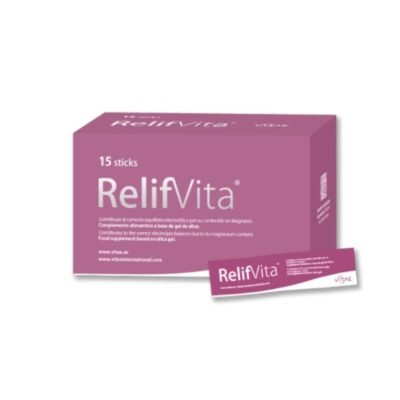Lately, we find ourselves in a world in which food intolerances and allergies have become very frequent. It is estimated that more than 10% of the population is sensitive to gluten and more than 90% are undiagnosed. Regarding lactose, between 19% and 28% present lactose intolerance.
But, let’s start at the beginning, what are food intolerances?
This phenomenon occurs when the body lacks the enzyme responsible for metabolizing a certain food and is unable to process or digest it, which can cause digestive problems. The symptoms that may appear are from abdominal pain and bloating, nausea and vomiting, diarrhea to constipation and gas.
The most common intolerances that usually appear are to lactose, fructose, gluten and hypersensitivity to alcohol.
What are the possible causes of intolerances?
There are several reasons why an intolerance can appear, among the best known are:
- Sensitivity to food additives
- Damage to the wall of the small intestine, as it allows harmful substances to enter the bloodstream
- Lack or malfunction of certain enzymes to process food, such as lactose. Your body doesn’t produce the lactase enzyme and it causes to not tolerate well when you drink milk, eat yogurt, cheese, etc.
- Malfunction or low amount of transporter for nutrient absorption
- Recurrent stress or psychological disturbances
Digestive enzymes
There is a type of molecules called digestive enzymes thanks to which digestion occurs since they are in charge of easily absorbing the nutrients from what we ingest. The most common are the following:
- Amylase: helps digest carbohydrates
- Lipases: helps digest fats
- Protease or peptidase: helps break down proteins
- Lactase: helps digest lactose
The role of probiotics with digestive enzymes
Not only digestive enzymes help us to have a better digestion, probiotics can also be good allies. Probiotics are very beneficial bacteria found in our intestines and improve the general health of the body, as well as facilitates the absorption of nutrients, stimulating digestion and helping defenses . Probiotics help fight and prevent intestinal diseases, such as colitis and even irritable bowel syndrome. They also regulate intestinal transit, help generate antibodies and increase the absorption of nutrients. There are 3 essential bacterial strains to improve our digestive system:
- Lactobacillus gasseri KS-13: stabilizes beneficial microbiota and improves immune function. Improves bowel function.
- Bifidobacterium bifidum G9-1: helps reduce cases of diarrhea and constipation, improving gastrointestinal health.
- Bifidobacterium longum MM-2: regulates the symptoms associated with irritable bowel syndrome. Shortens and lessens the severity of acute diarrhea.
Digestive enzymes are necessary to enjoy good health, just like having a good amount of probiotics in our body. As we have said, it may happen that the enzymes are not doing their job correctly and that we do not have enough probiotic strains , therefore, poor digestion or even the appearance of intolerances can occur.
Food intolerance vs. Food Allergy
At the beginning we talked about intolerance and allergy, but we must bear in mind that we cannot put them in the same bag, since there are some differences between the two concepts since the symptoms and the moment in which they appear are different:
- When there is an allergy to any food , the same thing will happen as if you are intolerant to it, but with the difference with an allergy will be the appearance of hives, inflammation in the mouth and/or lips and on some occasions it could even affect the respiratory system, having difficulty breathing.
- When there is an allergy, the symptoms will appear after approximately half an hour. However, when you are intolerant there is a margin of appearance of symptoms from the next day until years later.
Remember that in the appearance of any symptom of food intolerance, you should consult your healthcare professional, in order to detect what food it is and from there carry out a specific diet in which you avoid the intake of the substance that cause the intolerance. Always under the supervision of a health professional, another option could be taking food supplements, since they would help to combat many of the symptoms that appear with intolerance, providing you with everything your body lacks for better digestion.






